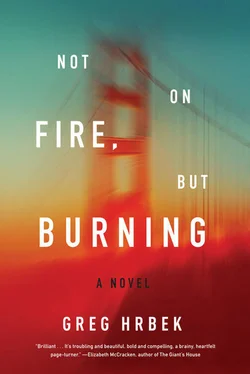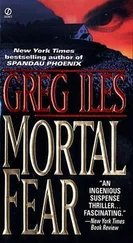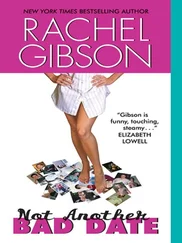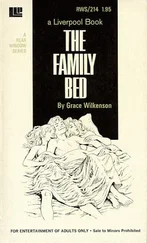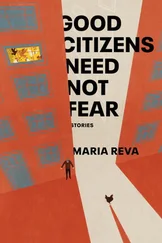At the time of the six gunshots, he had been in the study on the ground floor. Writing with pen and paper. As he has been doing every night for five nights now. Mitchell Wakefield is becoming something he never was before: nocturnal. Around nine o’clock, when the cicadas stop chorusing, is when the voice starts speaking. A sentence comes into his head; and once he has written it down, the space after the period or the question mark is immediately filled by another sentence, and the next space by another sentence, the pen moving as constantly as the needle of a polygraph. Tonight, the pen had done something different. Stopped mid-sentence. Frozen in the white space between two horizontal lines. Confused, Mitch removed the canalphones from his ears. He had been listening to ocean waves and the interrupting noise seemed to have come from somewhere on the shoreline. Maybe he hadn’t really heard it. Then — again — another explosion, followed an instant later by a sound like a micrometeoroid smashing through a roof window … Now Mitch is standing on his lawn, in the strobing lights of two police cruisers, a few yards away from a dead person. Man in a car, windshield scattered in pieces on the hood and on the dashboard and also (even this next detail he can see from beyond the yellow tape marking the borders of the crime scene) on the shirt and in the hair of the dead man, who is still upright in the driver’s seat, one forearm draped over the steering wheel as if cruising the main drag of some bygone town, shirt sopped with blood and a gash across one cheek, a furrow so deep you can see bone shining through the skin.
“Mr. Wakefield.”
Beside him: one of the neighbors. Whose first name Mitch can never remember. Deepak or Deepesh. Doesn’t know the wife’s name either. But both of them are surgeons. One operates on brains, the other hearts.
“Doctor, this is …”
“Very disturbing, I agree. But not surprising. Where Muslims go, violence follows.”
Mitch looks at him, a face flicking in and out of sight with the rotation of the lightbar beacons, skin shaded now red, now blue.
“I don’t say this in a prejudicial way.”
“No, I know.”
Looking at the car, the doctor says: “It’s obvious who this man is. So, what is he doing here? Have any such people ever come to our street before? No. They’re only here because that boy is here.”
“That boy.”
“Mr. Wakefield, let us face the facts. The boy was brought here. And then his Arab friends came and they assaulted your son …”
Dorian catches some of this. He has been standing a ways off, near the thicket of trees surrounding the gazebo, as if guiltlessness is a function of distance. He takes a step closer now, as his father says:
“Doctor, we’ve put that incident behind us.”
“Obviously not.”
“I’m not sure what you mean,” Mitch says. “This? I don’t see the connection.”
“Mr. Wakefield. You don’t know us well, me and my wife. But you know what we are. You know I’m a brain surgeon. You may not know that my wife’s patrilineage is Brahmin, but you know she is Indian-American. You know we’re Hindu. But the man in that car, he does not know and he doesn’t care. Indian, Persian, Pakistani, Iraqi. It’s all the same to him. Now, this man is dead. One less ethnocidal maniac. So, one might think our neighbor has improved the state of things. But in fact he has made things much worse. Because this man has confederates who will soon be very angry. Let us not delude ourselves. The question is not if they will come back. The question is when. And when they do, we will all be in danger. My wife and I for obvious reasons. But all of us by simple association, by reason of our inaction. We cannot sit by and do nothing.”
“What can we do?”
“Press charges. Press charges against the boy for assaulting your son.”
“We can’t do that,” Mitch says.
“Why not.”
(Dorian doesn’t want them to notice him, but he takes another step: closer to his father and the yellow tape, the car and the dead man, because some words of the conversation are still unclear.)
“What if we did.”
“If you did,” the doctor says, “then maybe we could stop this violence before it gets worse. Before more of us get drawn into it.”
“And what about the boy. He ends up where.”
“Where he belongs.”
“He’s just a boy,” Mitch says. “Same age as Dorian.”
“Mr. Wakefield, I’ve operated on children younger than your son. I’ve saved the lives of children. But a doctor also knows about hard choices. Think of 8-11. Should every victim have been helped and saved? Of course. But in certain eventualities—”
Ringtone.
At which sound the doctor will turn and see you. Stand your ground for a moment. Look your father in the eye. Then remove the phone from your pocket. UNKNOWN CALLER . Take a few steps toward the trees. As you answer, a voice will say:
“Dorian.”
Ask: “Who is this?”
“Who am I. Who the fuck do you think I am? What did I tell you. Tomorrow a gun. Well, it’s tomorrow, my friend.”
End the call.
Turn around. Your father in conversation now with a police officer. But your neighbor still looking at you while the lights of the cruisers flash like nerve impulses carrying messages between neurons …
The next day is Friday. The old guy can’t take him to jummah because he has to be at the police station with a lawyer present answering questions about the night’s bloodshed. So Karim gets to “hang out” for the day and go to prayers with Omar Mahfouz. At nine on the dot: the doorbell. Mrs. Mahfouz. Who appears none too pleased with the situation. The old guy asks her to come in for some sweet tea. She declines. Karim gets in the car and they drive for a good five minutes in total silence before she says: “I’m glad you’re safe, Karim. But what was done last night is not God’s way.” And so on. Karim sits in the passenger seat, pretending to listen, nodding from time to time. Knowing perfectly well that God has more ways than one. The house they arrive at is larger than the one he is living in. With an in-ground swimming pool and an in-ground basketball hoop with a glass backboard. Inside, downstairs, there is a room dedicated exclusively to a giant wall-mounted television: which is where Karim finds Omar, controller in hand, on a couch that seems to be digesting him slowly and alive.
“Hey,” Karim says.
The other boy, over and over again, is pulling a sort of trigger. On the screen, not people, but vaguely human beings with gray skin and unseeing eyes, are being shot repeatedly; and though their flesh is tearing off in clods on impact and blood is spraying everywhere, they don’t appear to be dying.
“What are you doing?” Karim asks.
“Dumb question.”
“What are those things?”
“What things.”
(Pointing to the television.) “That you’re fighting.”
“Are you kidding?” Omar says.
Only when the action freezes and GAME OVERappears on the screen does the other boy look at him.
“You want to play?”
“No.”
“Suit yourself,” he says, and starts it again, while Karim stands there and finally sits on the couch. Speechless for the duration of another massacre. When it’s done, Omar, like a follower of timeless rules of hospitality, again offers his guest the controller. Karim ignores him. Gets up and leaves the room. Mounts the stairs of the strange house and enters the kitchen, which is wide-open and silver, and still. He opens the refrigerator. What he wants is a soda; and like a wish granted, there it is. He sits by the pool and drinks it and thinks about taking out his coin and practicing his meditation, but he doesn’t want Omar to come out here and find him in a trance state. So he takes out his phone instead and checks Lifebook. There’s a post from the girl, Khaleela (two hours ago, in Washington, D.C.: standing beside a giant statue of a guy in a chair, a president whose name Karim can’t remember). Forty-three people like it and he adds himself to the list though he doesn’t actually like the picture. He links to her page. She has more than a thousand friends. He goes to his own page. Nine. One of whom is the boy downstairs. What kind of friend is he? It doesn’t matter, because with the coin Karim can go there any time; and even when the time is over, he can go there in his mind again tomorrow and be with her in his mind. Which is good. It is. And yet. I don’t want to pretend. I want to go to Paradise for real. And for always .
Читать дальше
